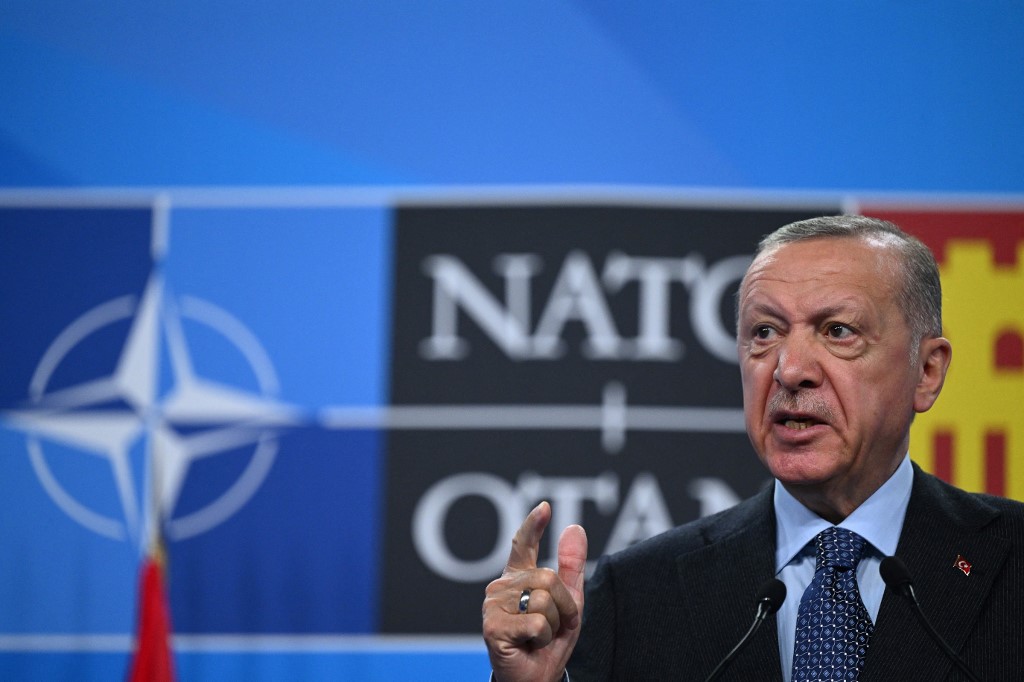Fatih Yurtsever*
Russia’s war on Ukraine has changed the geopolitical landscape and is likely to change the Euro-Atlantic security environment significantly. Facing security risks posed by Russia following its invasion of Ukraine and the challenges posed by authoritarian regimes such as China have forced NATO and the EU to increase their cooperation, while Turkey is expanding its relations with Russia. Moreover, Turkey has delayed the membership of Sweden and Finland in NATO, while the other allied countries, with the exception of Hungary, have approved their membership. Hungarian Prime Minister Viktor Orbán said on Nov. 24, 2022 that the Hungarian Parliament would ratify the NATO membership of Finland and Sweden in early 2023.
Since Turkey, a member of NATO, has procured Russia’s long-range S-400 air defense system and has not participated in the sanctions imposed on Russia, the unity of NATO is questionable. This is because Russia is considered a threat in the “NATO Strategic Concept” adopted on June 28, 2022, which will guide the future activities of NATO. Turkey is a signatory to this document.
Turkey and the EU have had a strained relationship. The Strategic Compass document adopted by the EU on March 25, 2022 states that relations with Turkey will continue in accordance with the Declaration of the Members of the European Council of March 25, 2021. In the European Council declaration, the EU called on Turkey to refrain from drilling in the eastern Mediterranean. This indicates that the EU is not currently seeking strategic cooperation with Turkey in the near future. While Turkey has problems with both NATO and the EU, cooperation between NATO and the EU has entered a new phase.
NATO Secretary-General Jens Stoltenberg, President of the European Council Charles Michel and President of the European Commission Ursula von der Leyen met on Jan 10, 2023 at NATO headquarters to sign the third Joint Declaration on NATO-EU cooperation. The declaration focuses on addressing geostrategic competition, resilience issues and the protection of essential infrastructure. The secretary-general emphasized that the joint declaration recognizes the significance of a more competent European defense that positively impacts security and is complementary to NATO.
There are essential issues that closely concern Turkey in the joint declaration. It is the EU and NATO’s priority to promote and safeguard peace, freedom and prosperity in the Euro-Atlantic area. Russia’s brutal war on Ukraine violates international law and the principles of the UN Charter. It undermines European and global security and stability. Authoritarian actors challenge EU and NATO interests, values and democratic principles using multiple means: political, economic, technological and military. It is very difficult for Turkey to maintain its relations with Russia at this level when both NATO and the EU clearly define Russia as a threat, and the organizations are developing cooperation with each other to counter that threat. If Turkey continues to pursue this course with Russia, Turkey’s membership in NATO will be questioned in the near future.
Indeed, former US National Security Advisor John Bolton’s assertion that Turkey’s membership in NATO could be questioned in 2023 because of its relations with Russia increases the likelihood that the above assessment of Turkey’s relations with NATO will become a reality.
“The unity and determination of the West will be truly tested in practice. Finland and Sweden have made the stunning decision to join NATO, but Russia’s trade and military partners have not yet abandoned it in its hour of need,” Bolton was quoted as saying.
“Unfortunately, this includes Turkey, whose NATO membership should be in doubt in 2023 if [Turkish] President Recep Tayyip Erdogan – probably through fraud – will be re-elected in the elections scheduled for June.“
Another point that stands out in the joint declaration is the following: “As the security threats and challenges we are confronted with are evolving in scope and magnitude, we will take our partnership to the next level on the basis of our longstanding cooperation. We will further strengthen our cooperation in existing areas, and expand and deepen our cooperation to address in particular the growing geostrategic competition, resilience issues, protection of critical infrastructures, emerging and disruptive technologies, space, the security implications of climate change, as well as foreign information manipulation and interference.”
The completion of Sweden and Finland’s accession to NATO is crucial to take the NATO-EU relationship to a new level. Under these circumstances, Turkey is unlikely to further delay their accession without risking a serious crisis with NATO.
As current developments show, NATO is indispensable to ensuring the security of the Euro-Atlantic region as the world evolves into a multipolar system and strategic competition sets in. However, instead of seeking to strengthen its relations with both NATO and the EU, Turkey’s increasing association with Russia could lead to its exclusion from NATO. For the sake of economic aid and political support from Russia in the run-up to the 2023 elections, the Erdoğan government is positioning Turkey as a NATO member state in the opposite position it should be in. While Turkey could reap significant gains by leveraging the opportunities presented by NATO-EU cooperation in areas such as defense, emerging and disruptive technologies, and space, by utilizing its NATO membership, unfortunately, the opposite is happening: Turkey’s NATO membership is being called into question.
* Fatih Yurtsever is a former naval officer in the Turkish Armed Forces. He is using a pseudonym out of security concerns.



